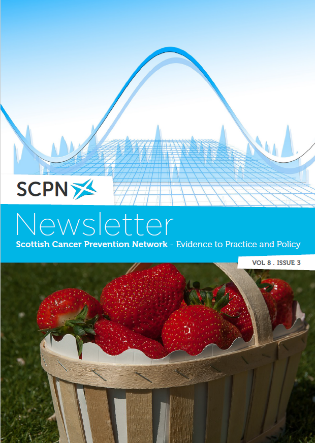
Have you seen these funded studies?

19 Aug 17 |
The Chief Scientist Office (CSO) provides funding opportunities for researchers in Scottish universities and health boards to undertake projects (up to £300k and three years) through two response mode research grant programmes covering the broad spectrum of applied health and care related research.
Following the publication of the 2015 Scottish Government health and social care research strategy, CSO repositioned its research grant programmes to place greater emphasis on relevance, importance, and potential impact on health in Scotland and the translation of research findings into policy practice either directly or by laying the foundations for larger definitive studies that can be supported by other UK health research funders.
To support this, CSO contributes financially to the National Institute of Health Research (NIHR) to allow researchers in Scotland to access the four major NIHR research programmes (EME, HS&DR, PHR and HTA), which have no funding threshold and therefore can fund large definitive studies.
The two CSO programmes are:
- Translational clinical studies research programme – for research aimed at improving treatments and / or diagnostic approaches for conditions
of clinical importance to the population of Scotland. - Health improvement, protection and services research programme – for research aimed at improving or protecting population health or improving the quality, safety and / or effectiveness of healthcare in Scotland.
For more information go to: http://www.cso.scot.nhs.uk/funding-2/
Cancer diagnosis as an opportunity for increasing uptake of smoking cessation services among families: an exploratory study of patients, family members and health professionals
Wells M, Harris F, Aitchison P et al.
Why is this paper important?
The time after a diagnosis of cancer may be a teachable moment for smoking cessation, especially if focused on the person’s future health. In-depth interviews were conducted with 29 patients with smoking related cancers and 14 family members who were current or recent ex-smokers and 24 health professionals from cancer care, primary care and smoking cessation services.
Most who had managed to give up smoking did so without the support of cessation services which they viewed as irrelevant or time consuming. Those who continued to smoke did so due to the emotional stress of their cancer diagnosis and treatment, they did not want to be pressurised to quit, they felt their addiction was too strong or they did not link smoking with their diagnosis or treatment outcomes.
Patients felt they would be more likely to use cessation services if they were located within the hospital.
Although patients and family members expected their smoking to be broached, health professionals were often reluctant to do so in case they appeared judgmental or made patients feel guilty. Health professionals were also not up to date with cessation services.
Bottom line
Staff training, support and tailored materials are required so that the guidance can be implemented within cancer care.
TreatWELL – a feasibility study to assess the delivery of a lifestyle intervention for colorectal cancer
patients undergoing potentially curative treatment
Anderson AS, Steele RJC, O’Carroll RE et al.
Why is this paper important?
Colorectal cancer (CRC) survival has improved, but in Scotland, survivors still have notable excess mortality within the first year post diagnosis compared to other European countries. In addition, survivors have high rates of co-morbidities. Evidence suggests that lifestyle improvements have considerable potential to impact on morbidity and recurrence.
This study aimed to assess the feasibility of delivering an intervention programme (TreatWELL) for CRC patients undergoing potentially curative
treatments. Delivered in 3 face to face sessions (plus phone calls) by lifestyle counsellors over three phases (prehabilitation, surgical recovery and post
therapy recovery). Feasibility outcomes included recruitment rates, phase length, implementation ease, feasibility of study measurements, patient acceptability, adherence and retention.
Of eligible participants, 26% were recruited and 18% completed the study. Acceptability of the intervention was rated highly. Although programme adherence was endorsed by many NHS staff, further support could have been provided. The feedback from participants suggests a focus on physical activity (from diagnosis, through treatment and beyond) was highly acceptable and may be beneficial for both mental and physical health.
Bottom line
The practicalities of delivering and evaluating intervention programmes from diagnosis to treatment end in this client group need to take account of complex clinical pathways. Addressing problems of excess weight in patients with bowel cancer remains a challenge that requires further investigation.
This article was originally published in The SCPN Newsletter Volume 8, Issue 3. Read the digital newsletter below using Issuu, or feel free to download the PDF.
View the PDF
The SCPN Newsletter: Volume 8, Issue 3
In this issue: Achieving a tobacco-free generation by 2034 and improving the reach of Scotland’s cancer screening programmes are among the topics covered in Volume 8, Issue 3. In the science section we have the CUP report on Diet, Nutrition, Physical Activity and Breast Cancer from World Cancer Research Fund, cancer incidence in Scotland and the latest cancer and lifestyle research roundup. We also have a recipe for watermelon and tomato breakfast salad to break things up!